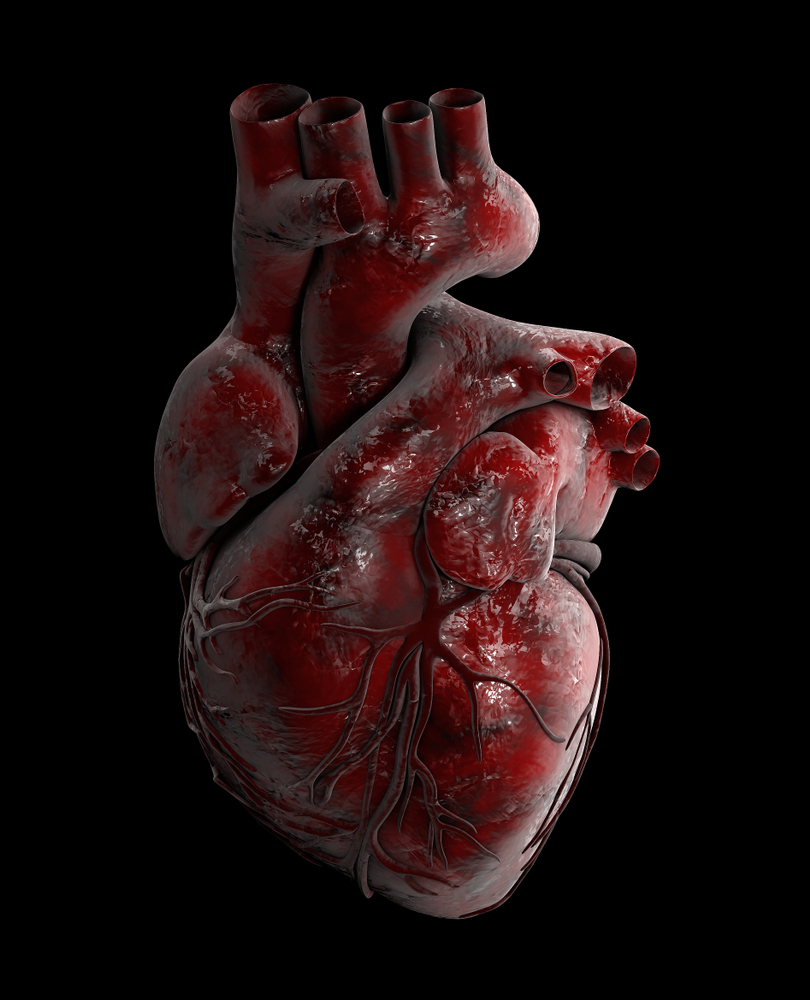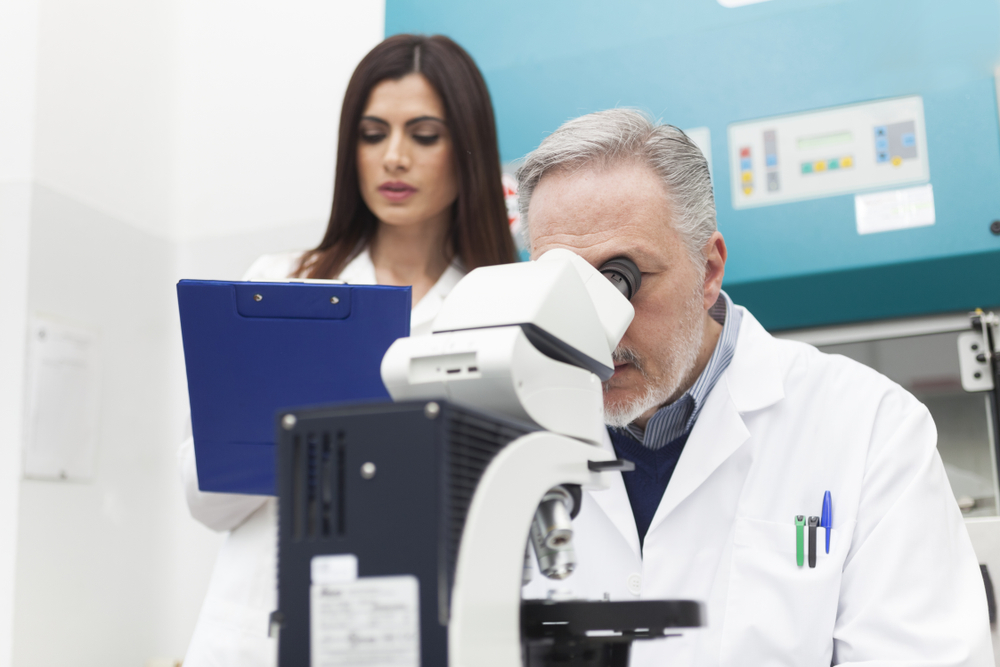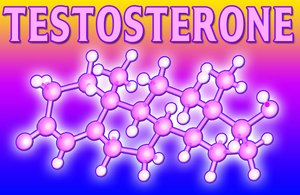Video Link: https://vimeo.com/293546608
Video Download: Click Here To Download Video
Video Stream: Click Here To Stream Video
A new study was recently released in the journal, Endocrinology, which provides evidence that Testosterone is associated with cancer risk in rats when rodents are exposed to chemicals that are known carcinogens. For this reason, the lead  researcher of the study believes that men should be extremely wary of taking Testosterone without an established clinical need.
researcher of the study believes that men should be extremely wary of taking Testosterone without an established clinical need.
Testosterone is experiencing a surge in popularity like never before, as a means to enhance sexual function, combat fatigue, increase muscular strength, and improve body composition. Men all across the country and the world have experienced the benefits of Testosterone for Low-T, but many men seek Testosterone that has no clinical need for treatment.
A survey by the Journal of Clinical Endocrinology and Metabolism discovered that the number of men on Low-T Treatments with Testosterone increased fourfold since the year 2000. In addition to that, new research in recent years suggests that Testosterone Therapy may be associated with an increased risk of dangerous heart conditions.
Could Heart Risks Be Exaggerated?
Taking Testosterone alone does appear to have some heart and cardiovascular risks associated with it, but further investigation strongly suggests that these risks can easily be mitigated through the responsible use of Estrogen Blockers and other preventative measures.
The primary reason why Testosterone leads to these risks is that Testosterone is associated with a simultaneous increase in Estrogen Levels because the male body produces Estrogen from Testosterone. Estrogen Blockers work by suppressing this conversion, keeping Estrogen at healthier levels while still providing the heart- and body-wide benefits that Testosterone can provide.
these risks is that Testosterone is associated with a simultaneous increase in Estrogen Levels because the male body produces Estrogen from Testosterone. Estrogen Blockers work by suppressing this conversion, keeping Estrogen at healthier levels while still providing the heart- and body-wide benefits that Testosterone can provide.
A second reason why Testosterone can increase the risk of heart problems is that it increases activity in the bone marrow, which encourages the production of Red Blood Cells, which increases the density of the blood, which can lead to issues related to clotting and high blood pressure in sensitive individuals. By donating blood regularly, it is possible almost wholly to negate this risk.
Testosterone Therapy Guidelines
The Endocrine Society establishes medical guidelines regarding Hormone Replacement Therapy, and they suggest that only men with clinically low Testosterone Levels should be approved for therapy. In addition to having low Testosterone Levels, they should also be suffering from symptoms related to that condition, including Hypogonadism, Erectile Dysfunction, and low libido.
How Serious Could the Testosterone-Prostate Cancer Risk Be?
The lead investigator for this animal research study is Dr. Maarten Bosland, a researcher at the University of Illinois at Chicago. Based on this research, it  appears that Testosterone itself does not lead to cancer-causing activity, but, in the presence of carcinogens, Testosterone can increase the odds that tumors develop. In the end, Dr. Bosland considers Testosterone a mild carcinogen.
appears that Testosterone itself does not lead to cancer-causing activity, but, in the presence of carcinogens, Testosterone can increase the odds that tumors develop. In the end, Dr. Bosland considers Testosterone a mild carcinogen.
Testosterone Cancer Study Specifics
In this study, four groups of rats were studied. Two groups of rats received Testosterone via an implantable device, two groups of rodents received an injection of a potent carcinogen, and one group remained completely clean. The type of lab rats used were Wister Unilever Rats, which are designed specifically for animal research. All rats retained their own ability to produce Testosterone.
In one group, researchers exposed the rats to a particular carcinogen known as N-nitroso-N-methyl urea (MNU). The second group received Testosterone but were not exposed to this carcinogen. The third group received no Testosterone, nor were they exposed to MNU. The fourth group, finally, were exposed to MNU  but did not get Testosterone.
but did not get Testosterone.
By comparing and contrasting the four groups, it is possible to see how much that Testosterone amplifies the carcinogenic effects of this cancer-causing agent.
What is MNU?
MNU is a chemical that is incredibly carcinogenic and leads directly to significant genetic damage, which reliably causes cancer in animal species. It is almost exclusively used for research purposes, so long-term human exposure is negligible. However, it is strongly assumed that the chemical is highly carcinogenic in humans as it is in other species.
Testosterone-Prostate Cancer Results
In the group which received Testosterone but were not exposed to MNU, 10 to 18 percent of the rats ended up experiencing prostate cancer. The use of Testosterone did not lead to a definite increase in tumors in any particular area of the rodent body. Still, these rats did experience an increase in cancer rates as compared to rats, which received no Testosterone at all.
On the other hand, when rats received Testosterone while being exposed to MNU, it led to a significant increase in Prostate Cancer, between 50% and 71%. Testosterone increased Prostate Cancer Risk in combination with MNU even  when rats were treated with a very low dose of Testosterone, too low even to alter Serum Testosterone Levels. Rats that received a very low dose of Testosterone, as described, experienced a 50% increase in Prostate Cancer risk. The rodents that were exposed to MNU did not experience an increase in Prostate Cancer risk.
when rats were treated with a very low dose of Testosterone, too low even to alter Serum Testosterone Levels. Rats that received a very low dose of Testosterone, as described, experienced a 50% increase in Prostate Cancer risk. The rodents that were exposed to MNU did not experience an increase in Prostate Cancer risk.
This means that Testosterone increases the carcinogenic activity of MNU upon the prostate and that, without Testosterone, MNU has no meaningful effects on the prostate, despite being highly carcinogenic in other respects.
Why is this Information Important?
The body of evidence regarding the potential causal link between Testosterone and Prostate Cancer is incomplete and necessitates research. The effects of Testosterone upon Prostate health are not fully understood at this time, mainly because Testosterone Replacement is a relatively newly-developed medical treatment, and Prostate Cancer is a very gradual disease that progresses over many, many years.
To date, there is no clinical evidence that Testosterone Therapy contributes to Prostate Cancer. Still, until the scientific data is complete on the subject, it would be prudent to recognize the potential risk.
In particular, Dr. Bosland believes that this data provides evidence that men without Low-T should not use Testosterone Treatments, including Testosterone Creams, Gels, and Injections, because these potential risks are heightened by having Testosterone Levels which are artificially high.
This data also shows the  importance of living a healthy and conscientious lifestyle while taking Testosterone or other forms of Hormone Replacement Therapy, because limiting one's exposure to cancer-causing agents potentially increases the safety profile as well as the effectiveness of treatment.
importance of living a healthy and conscientious lifestyle while taking Testosterone or other forms of Hormone Replacement Therapy, because limiting one's exposure to cancer-causing agents potentially increases the safety profile as well as the effectiveness of treatment.
At least for now, Testosterone Therapy should only be used by those that need it. Testosterone Supplementation can indeed be a game-changer for men that are suffering from issues related to Testosterone Deficiency and Low-T. Still, men should not use Testosterone merely as a mechanism to counteract aging itself, or for bodybuilding or performance enhancement.
Testosterone is not an Anti-Aging Treatment, but for men with Low-T, it can mitigate many symptoms that suppress male health and wellness that are commonly associated with aging.
Contact Us Today For A Free Consultation

- Adverse Effects of Testosterone Therapy in Adult Men: A Systematic Review and Meta-Analysis [Last Updated On: July 2nd, 2024] [Originally Added On: June 4th, 2010]
- Low Testosterone Levels, Foods That Increase Testosterone Levels wwwSelf-Improvement-Bible.com [Last Updated On: November 12th, 2023] [Originally Added On: May 30th, 2011]
- Low Testosterone in Men: The Next Big Thing in Medicine! - Abraham Morgentaler, MD [Last Updated On: May 7th, 2023] [Originally Added On: June 3rd, 2011]
- How To Determine Testosterone Levels By Looking At Your Ring Finger [Last Updated On: December 7th, 2017] [Originally Added On: June 30th, 2011]
- Prolab Horny Goat Weed Testosterone Booster Supplement Review [Last Updated On: November 23rd, 2023] [Originally Added On: July 19th, 2011]
- The Healthy Skeptic: Products make testosterone claims [Last Updated On: August 13th, 2024] [Originally Added On: September 11th, 2011]
- How To Naturally Increase Testosterone [Last Updated On: November 21st, 2023] [Originally Added On: September 28th, 2011]
- Testosterone Production - Video [Last Updated On: November 25th, 2024] [Originally Added On: November 20th, 2011]
- Testosterone makes us less cooperative and more egocentric, study finds [Last Updated On: January 23rd, 2018] [Originally Added On: February 1st, 2012]
- Testosterone makes us less cooperative and more egocentric [Last Updated On: January 24th, 2018] [Originally Added On: February 1st, 2012]
- Too much testosterone makes for bad decisions, tests show [Last Updated On: April 30th, 2025] [Originally Added On: February 1st, 2012]
- Today in Research: Testosterone's Negative Effects; Diet Soda Death [Last Updated On: January 2nd, 2018] [Originally Added On: February 2nd, 2012]
- Testosterone drives ego, trips cooperation [Last Updated On: December 2nd, 2017] [Originally Added On: February 4th, 2012]
- FDA approves BioSante/Teva's testosterone gel [Last Updated On: April 28th, 2025] [Originally Added On: February 15th, 2012]
- 'Manly' Fingers Make For Strong Jawline in Young Boys [Last Updated On: December 1st, 2017] [Originally Added On: February 15th, 2012]
- Teva, BioSante Win U.S. Approval for Testosterone Therapy [Last Updated On: December 10th, 2017] [Originally Added On: February 15th, 2012]
- BioSante Gains on Approval of Testosterone Gel: Chicago Mover [Last Updated On: January 8th, 2018] [Originally Added On: February 16th, 2012]
- BioSante soars following drug approval from FDA [Last Updated On: December 26th, 2017] [Originally Added On: February 16th, 2012]
- Antibodies, Not Hard Bodies: The Real Reason Women Drool Over Brad Pitt [Last Updated On: December 24th, 2017] [Originally Added On: February 21st, 2012]
- Almark Publishing Releases Book From Mark Rosenberg, M.D. Revealing Natural Discoveries Associated With Low ... [Last Updated On: May 3rd, 2025] [Originally Added On: February 28th, 2012]
- Testosterone Replacement Clinic Comes to Kansas City with Potential to Help Thousands of Men [Last Updated On: May 2nd, 2025] [Originally Added On: March 1st, 2012]
- Study examines the relative roles of testosterone and its metabolite, dihydrotestosterone in men [Last Updated On: December 2nd, 2017] [Originally Added On: March 7th, 2012]
- The Role of 5{alpha}-Reductase Inhibition in Men Receiving Testosterone Replacement Therapy [Editorial] [Last Updated On: December 21st, 2017] [Originally Added On: March 7th, 2012]
- Effect of Testosterone Supplementation With and Without a Dual 5{alpha}-Reductase Inhibitor on Fat-Free Mass in Men ... [Last Updated On: January 3rd, 2018] [Originally Added On: March 7th, 2012]
- Why We Like Men Who Can Keep Their Cool [Last Updated On: December 30th, 2017] [Originally Added On: March 7th, 2012]
- Testosterone And Heart Health [Last Updated On: May 1st, 2025] [Originally Added On: March 10th, 2012]
- Your Life on Testosterone: Overly Sure of Yourself, Unwilling to Listen [Last Updated On: November 25th, 2018] [Originally Added On: March 15th, 2012]
- Mayo Clinic-TGen study role testosterone may play in triple negative breast cancer [Last Updated On: December 8th, 2017] [Originally Added On: March 23rd, 2012]
- A dose of testosterone might not cure what ails you [Last Updated On: January 23rd, 2018] [Originally Added On: March 25th, 2012]
- Green tea could aid athletes hide testosterone doping [Last Updated On: December 16th, 2017] [Originally Added On: March 25th, 2012]
- TGen Study Role Testosterone May Play in Triple Negative Breast Cancer [Last Updated On: December 6th, 2017] [Originally Added On: March 26th, 2012]
- Testosterone low, but responsive to competition, in Amazonian tribe [Last Updated On: January 23rd, 2018] [Originally Added On: March 28th, 2012]
- Competition-linked bursts of testosterone are fundamental aspect of human biology, study of Amazonian tribe suggests [Last Updated On: December 25th, 2017] [Originally Added On: March 28th, 2012]
- Playing football boosts testosterone levels by 30 percent! [Last Updated On: February 4th, 2024] [Originally Added On: March 28th, 2012]
- Testosterone low, but responsive to competition, in Amazonian tribe -- with slideshow [Last Updated On: December 9th, 2017] [Originally Added On: March 28th, 2012]
- The benefits of testosterone pellet therapy [Last Updated On: January 24th, 2018] [Originally Added On: March 29th, 2012]
- Low testosterone levels cause health woes [Last Updated On: November 25th, 2018] [Originally Added On: March 30th, 2012]
- Heart Failure Patients Getting Relief from Testosterone Supplements [Last Updated On: May 5th, 2025] [Originally Added On: April 21st, 2012]
- Study Finds Fatherhood Suppresses Testosterone [Last Updated On: May 4th, 2025] [Originally Added On: May 3rd, 2012]
- Low testosterone levels could raise diabetes risk for men [Last Updated On: January 26th, 2018] [Originally Added On: May 5th, 2012]
- Why low testosterone may increase your risk of diabetes [Last Updated On: November 25th, 2024] [Originally Added On: May 5th, 2012]
- Diabetes link to low testosterone [Last Updated On: November 25th, 2024] [Originally Added On: May 5th, 2012]
- Testosterone Linked to Weight Loss in Obese Men [Last Updated On: January 2nd, 2018] [Originally Added On: May 11th, 2012]
- Testosterone may help weight loss [Last Updated On: November 25th, 2024] [Originally Added On: May 11th, 2012]
- Testosterone-fuelled infantile males might be a product of Mom's behaviour [Last Updated On: December 25th, 2017] [Originally Added On: May 11th, 2012]
- Testosterone-fueled infantile males might be a product of Mom's behavior [Last Updated On: January 6th, 2018] [Originally Added On: May 11th, 2012]
- Testosterone supplements may help obese men lose weight [Last Updated On: January 5th, 2018] [Originally Added On: May 11th, 2012]
- Testosterone supplements 'can help men lose their middle-aged spread' [Last Updated On: November 25th, 2024] [Originally Added On: May 12th, 2012]
- Some doctors question safety of testosterone replacement therapy [Last Updated On: January 20th, 2018] [Originally Added On: May 15th, 2012]
- Health Canada Approves New Testosterone Topical Solution for Men [Last Updated On: May 15th, 2025] [Originally Added On: May 15th, 2012]
- Environment trumps genes in testosterone levels, study finds [Last Updated On: May 8th, 2025] [Originally Added On: May 15th, 2012]
- Global Testosterone Replacement Therapy (TRT) Industry [Last Updated On: May 7th, 2025] [Originally Added On: May 21st, 2012]
- Testosterone Fuels Boom, Swindler Sows Panic: Top Business Books [Last Updated On: January 13th, 2018] [Originally Added On: June 2nd, 2012]
- Increase in testosterone drug use [Last Updated On: April 12th, 2018] [Originally Added On: June 4th, 2012]
- Testosterone Promotes Agression Automatically [Last Updated On: January 29th, 2018] [Originally Added On: June 9th, 2012]
- Testosterone shown to help sexually frustrated women [Last Updated On: January 27th, 2018] [Originally Added On: June 9th, 2012]
- Research and Markets: Testosterone Replacement Therapy (TRT) - Global Strategic Business Report [Last Updated On: December 23rd, 2017] [Originally Added On: June 12th, 2012]
- Proposed testosterone testing of some female olympians challenged by Stanford scientists [Last Updated On: January 30th, 2018] [Originally Added On: June 14th, 2012]
- Testosterone Makes Bosses Into Jerks, Says Paul Zak [Last Updated On: January 8th, 2018] [Originally Added On: June 14th, 2012]
- Testosterone Therapy: A Misguided Approach to Erectile Dysfunction (ED) [Last Updated On: May 10th, 2025] [Originally Added On: June 20th, 2012]
- New drugs, new ways to target androgens in prostate cancer therapy [Last Updated On: January 8th, 2018] [Originally Added On: June 20th, 2012]
- Long-term testosterone treatment for men results in reduced weight and waist size [Last Updated On: January 19th, 2018] [Originally Added On: June 23rd, 2012]
- Declining testosterone levels in men not part of normal aging, study finds [Last Updated On: December 27th, 2017] [Originally Added On: June 23rd, 2012]
- Low testosterone not normal part of aging [Last Updated On: December 22nd, 2017] [Originally Added On: June 25th, 2012]
- Testosterone Does Not Necessarily Wane With Age [Last Updated On: December 6th, 2017] [Originally Added On: June 25th, 2012]
- Overweight men can boost low testosterone levels by losing weight [Last Updated On: December 10th, 2017] [Originally Added On: June 25th, 2012]
- Testosterone-replacement therapy improves symptoms of metabolic syndrome [Last Updated On: January 14th, 2018] [Originally Added On: June 26th, 2012]
- Testosterone therapy takes off pounds [Last Updated On: December 11th, 2017] [Originally Added On: June 26th, 2012]
- Weight loss may boost men's testosterone [Last Updated On: May 9th, 2025] [Originally Added On: June 27th, 2012]
- Low Testosterone? Study finds age may not be to blame [Last Updated On: May 12th, 2025] [Originally Added On: July 1st, 2012]
- Do you have low testosterone? [Last Updated On: December 15th, 2017] [Originally Added On: July 8th, 2012]
- Wall Streeters Buying Testosterone for an Edge [Last Updated On: May 11th, 2025] [Originally Added On: July 12th, 2012]
- Beefy Wall Street Traders rub on testosterone [Last Updated On: February 20th, 2024] [Originally Added On: July 12th, 2012]
- Tale of two runners exposes flawed Olympic thinking [Last Updated On: December 23rd, 2024] [Originally Added On: July 19th, 2012]
- Genetic markers for testosterone and estrogen level regulation identified [Last Updated On: January 6th, 2018] [Originally Added On: July 20th, 2012]
- BUSM researchers identify genetic markers for testosterone, estrogen level regulation [Last Updated On: December 18th, 2017] [Originally Added On: July 20th, 2012]
- DRS. OZ AND ROIZEN: How to reap the benefits of normal testosterone levels [Last Updated On: December 23rd, 2024] [Originally Added On: July 21st, 2012]
- How Testosterone Drives History [Last Updated On: December 24th, 2024] [Originally Added On: July 22nd, 2012]
- Testosterone replacement is "fountain of youth" for men [Last Updated On: January 3rd, 2018] [Originally Added On: July 27th, 2012]
- Pill for low testosterone in men heads for phase II clinical trials [Last Updated On: December 31st, 2017] [Originally Added On: August 2nd, 2012]
Word Count: 1103




















